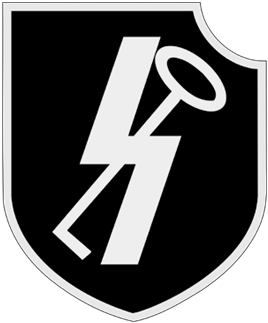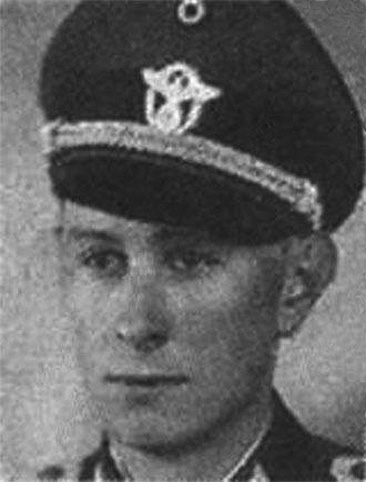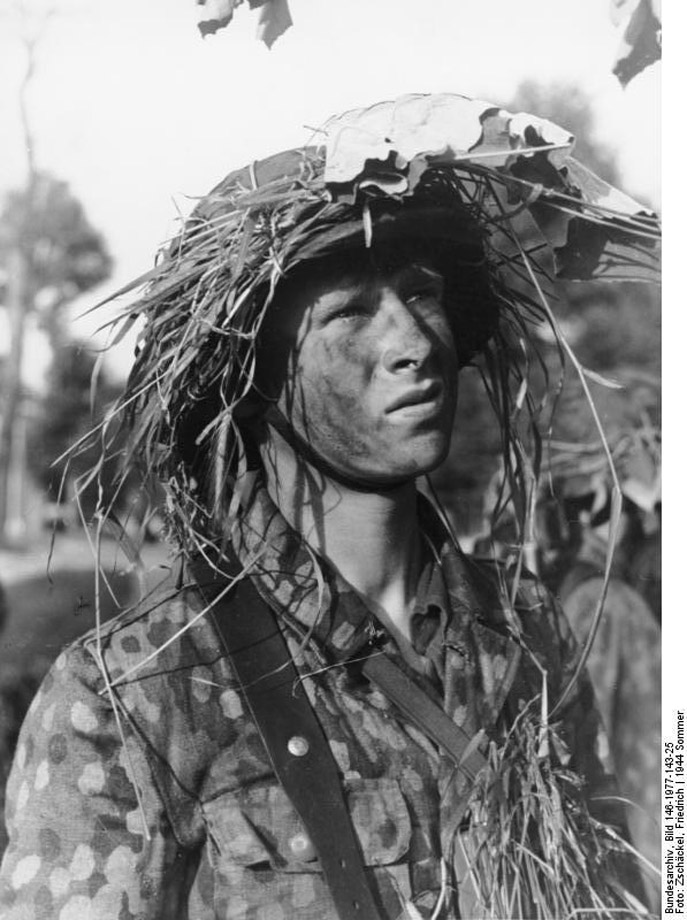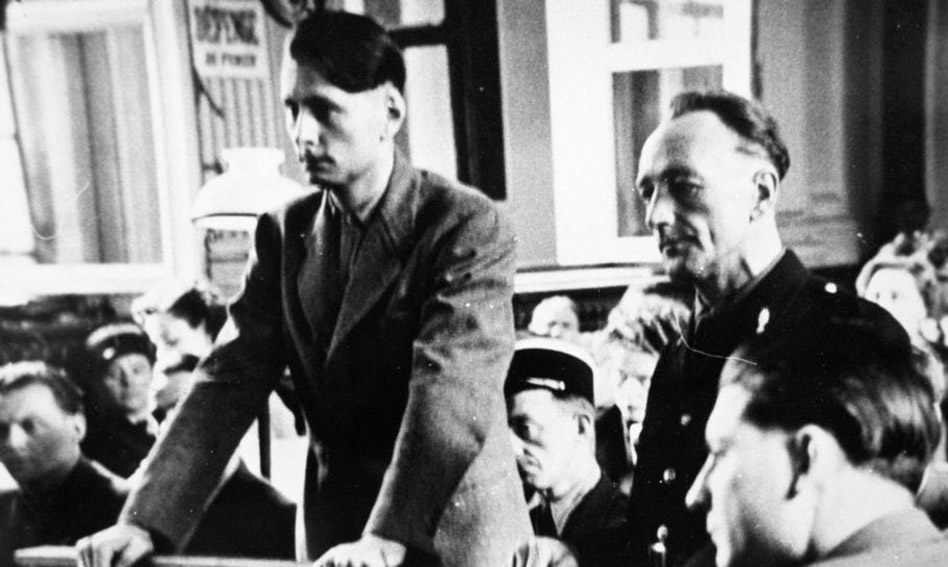
Interview with Walter Hauck, Hitlerjugend Division officer, Flensburg, Germany 1987.




Interview with Walter Hauck, Hitlerjugend Division officer, Flensburg, Germany 1987.



Thank you for allowing me to meet with you, I am curious to know what brought you to join the Waffen-SS?
Walter: The war did, it is very simple for me to answer that. When the war started I was in the German police, and had many friends who had volunteered for the SS. We, as police officers, were already in effect part of the SS. Himmler was in charge of both the SS and the police and we were encouraged to come to the SS to fight.
When war was declared my mind had already been made up, I would go to the Waffen-SS when the time came. I went to apply and was accepted after the tests. I have never regretted that decision to serve my nation.
Can I ask what it was like being in the police before the war?
Walter: Yes, it was a demanding job, some have said there was no crime in the Reich, but this is not true, there were always petty issues. We stayed busy dealing with the antics of the civilian population. I remember some of the incidents I saw. One was a fight between neighbors because one whistled at the other's wife.
We always had problems from the old communists back then; they had very bad children, who always got reported for stealing or fighting. It was a joke among us that the old communist neighborhoods were the most crime-ridden. This is why so many were sent to prison camps, they always broke the law.
There was this one who I remember was sent away for vandalizing homes of NSDAP supporters right after Hitler was elected. He was released and in 1939 was rearrested for doing the same thing again. This time he threw a rock and hit a young girl in the face causing serious injury.
We also dealt with traffic problems and drunks; German beer is very good to many. I heard of cases where people stole from employers and fenced items. As I look back I must say at least we never had any large crimes, it was always just petty offenses that you get with large groups of people.
We had to work crowd control if there was an event happening, and the people were always hard to manage. Everyone wanted to get the best view, and so would intrude into other people's space, or try to get into the street. If there were handicapped people we had to make room for them and their helpers.
Friends who stayed in the police during the war said there were problems with prisoners of war. It was decided to allow some prisoners to stay with civilians to work for them. It was quite bizarre, so naturally the lonely housewives or daughters would sometimes allow themselves to be used.
This was against the law and it caused quite some embarrassment to those who chose to do this. There was one famous case from 1942 where a Russian prisoner developed feelings for a soldier's wife, and when he came home on leave the prisoner killed him.
I understand you are a Normandy fighter, can I ask what it was like?
Walter: Yeah, yeah, I was in Normandy with the HJ Division, we arrived right before the invasion from Belgium. I remember on the 6th it took far too long to receive orders to move to the front, by then the Allies had already landed. Our commander was Fritz Witt, he was furious at the general officers who held us up.
I remember Kurt Meyer saying we had been beaten before the battle even started, by our own generals. The feeling among many SS men was that the army generals did not believe in final victory, so they aided the enemy to shorten the war.
When we did receive orders to move out, my company was the first to go to scout before reaching Caen [France]. Almost immediately we came under Jabo [German slang for an Allied fighter-bomber] attacks, they ruled the skies. They shot at anything moving; even the French who were trying to flee the battle were hit.
Our mission was to go through Caen, drive to the beaches, and engage the invaders. We were stopped by Canadian and British troops who had already advanced far from where we were told they were. We came under fire and had to retreat.
Any German forces that advanced were met by naval fire, air attack, and tanks. It gave us a taste of what was to come, but we fell back and prepared defensive lines. It was thought we could hold and contain the Allied beachheads, and bleed them dry. I must say, at first this looked possible, when the Canadians attacked us, they took ghastly losses.
Our Pak guns took a toll on their tanks, and our Panzers blunted many armored attacks. We took our first prisoners, and they were very hard to control. They had been filled with propaganda that they had won the war; we were baby killers, as well as baby soldiers which was an insult.
I had to go confront an officer to force him to control his men; they were mocking us in their language and making funny faces at us. Can you imagine, these men were beaten and captured but yet acted like the war was over and they won? Once weapons were drawn on them they took us seriously. My boys retaliated by waving their hand by their nose to play the Canadians' game.
We quickly marched them off to the rear to collection centers, one of which had just been strafed by a Jabo, with many wounded that we had to help. We lived in holes and trenches and now their hard training made sense to them. I remember we were under shell fire fairly often, they had limitless shells.
They had very good training from many officers of the LSSAH [Leibstandarte SS Adolf Hitler] and the army, who all had combat experience. They were taught to survive in any and all circumstances, and to be tough as nails. To this day I bet the enemy is still reeling from being beaten by mere boys. They only won due to the material and numerical superiority over us.
Another mistake the general staff made was there were only two divisions anywhere close to the landings, and they were many km behind the beaches. The initial landings fell on just a few coastal batteries and eastern soldiers who had zeal but no real experience in this type of war.
I have learned there was a sole Panzer unit on the coast with old French tanks that were outdated even in 1940. The Allies thump their chest at their brave victory that day, but in truth they landed against sparsely spaced units, with no frontline equipment. It is testament to German resolve that even this caused them dreadful losses. Even our understrength division helped hold them for two months, you should have seen the destroyed equipment.
We even had heavy guns that shelled them in return, and could hit the beaches, but the Jabos made it tough and had success in attacking any artillery, it had to be well-hidden in the woods. They also made getting supplies hard; we always seemed to lack food and ammunition. We would hear of supply columns getting attacked both by Jabos and the terrorists. We still made do, and gave many good accounts of ourselves.
It was only when our losses could not be made good, and the Allies breached the front, that the HJ Division had to be pulled back and retreat. The pride of the boys was never broken and they carried this till the end.

[Above: A young Hitlerjugend Division soldier in Erbsenmuster, France. June 21, 1944. Courtesy of the Bundesarchiv.]
Can I ask how the civilians treated you while in France?
Walter: All was good as far as I remember; they really liked us and many saw us as their own sons. In both Beverloo and Hasselt the people treated us well, and often offered food and cakes. They were occupied you see, but they did not treat us as the enemy. In fact the mayor had to ask us to not get into relations as we were only there temporarily, and it hurt the women.
This did not stop some of the boys from getting new pen pals or showing off lipstick on the cheek. Some who were older had girls from the Reich come to visit, and this was something the jealous ones teased them about.
I remember a funny thing, a French mother came to complain that her daughter was kissed by one of my boys, but when asked he said she kissed him first and he kissed her back, right when the mother came. I told him to be more careful. We had to complain about one very big breasted girl who sunbathed when we did drills or marches, the young ladies would come out to flirt and admire the young soldiers.
I have to say it was far different back then from today, we were seen as charming lads and not the criminals they say we are today. A new wave of hate has been preached to the young who now look upon us as evil soldiers, which we were not. We were only serving our country in its time of need.
The only time there were problems was with the terrorists, whom the Allies encouraged. These people wore no uniform, carried out sabotage, or planted bombs that killed many soldiers and even their own civilians. When caught in the act they were all arrested and usually executed.
Our measures against them were harsh at times, but we had to be to stop any further attacks. They knew what they were getting into, as warnings were up all over that anyone aiding and hiding terrorists was subject to harsh punishment. Most of the French understood we only took action when it was absolutely necessary. Our orders and goal was to not make more enemies that could side with the Allies.
For the terrorists, they went out of their way just to provoke us. They knew any action against them would make them look good. Many Germans were tried after the war for alleged crimes, but it is testament to the French civilians that they vouched for Germans and demanded reduced sentences, as they knew we had acted correctly.
This has been a sore point in our relations with many occupied countries, the terrorists committed horrible crimes on German military personel and property, and anyone helping us. This is okay, but when we retaliated against them they call it a crime. That many of their people who were part of this cried for our pardon says it all.
I can show you many trials in France where SS men were found innocent or pardoned, as they knew we were right in our actions. We have nothing to be ashamed of while fighting the terrorists. They had no right to do the things they did to us.
Can I ask about your feelings regarding the war crimes allegations the Allies accuse the SS of?
Walter: Yeah, yeah, that is complete and utter propaganda, the media is the worst. I have heard it all, from the HJ shooting prisoners, to rounding up Jews, to killing innocent civilians. The truth is we never did these things; we did fight hard and with fanaticism, but always with honor.
As our orders and policy was to take prisoners, if any were shot then there were other circumstances the Allies did not want anyone to look at. The same with terrorists, they acted in a manner that would bring a swift punishment, and they knew it.
At the end of the war I saw so many acts of terror against Germans that it really shook me. The stories they tell today about us could easily be reversed, and it would be true. I saw the dead civilians, where many had been abused before being killed. I saw the looting in the east by the Bolsheviks, and terrorists attacking those fleeing to the Reich border.
I must tell you I had a girlfriend that had been abused by Czechs while retreating, I was in command and we attacked their positions and made them pay. At war's end many people from the occupied areas were made to rise up and attack anything German. Many women helpers were assaulted and even killed.
Many nurses from the camps and hospitals had to flee as prisoners were released and sought them as easy prey. Some women prisoners even fell victim I was told, it was madness. You can not possibly understand what it was like at the end, pure chaos, but we tried to keep order until the end.
My girlfriend's best friend made the journey with her and was attacked by men who stabbed her for resisting them. This happened all over the east, and yet not a word today, they say it is not proper to speak about this. I also saw this in Hungary where their women had the same thing happen by the Soviets.
War is never pretty my friend; it is something that leaves bad blood and hate in its wake. The loss and devastation is never worth it, and I hope we never see another one, pray for your generation to never see it.

[Above: Walter Hauck in the garb of an SS knight, October 23, 1942.]

[Above: Walter Hauck on the stand (left) in an Allied kangaroo court.]
***** Read a short article on the trial of Walter Hauck and his men *****